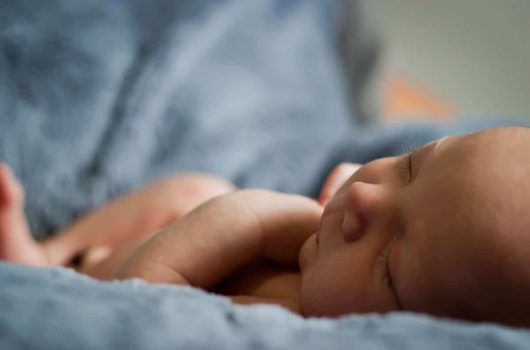Now that your baby’s born, you might be thinking you can go back to drinking coffee or having your favorite cola drink. But is it safe to do so if you’re breastfeeding? We get to the facts.
Does the caffeine you consume get into your breastmilk?
The answer is yes. Whatever you consume that contains caffeine causes a small amount of caffeine to enter your bloodstream. This results in about 1 percent of the caffeine entering your breastmilk.

Does that mean I can’t have caffeine when breastfeeding?
Don’t panic. You need to exercise good old portion control. Experts recommend keeping your caffeine intake to below 300mg a day. This isn’t that little when you consider the caffeine content of some popular drinks:
- 1 mug filter coffee – 140mg
- 1 mug instant coffee – 100mg
- 1 mug tea – 75mg
- 1 cola drink (354ml) — 40mg
- 1 can energy drink – up to 80mg or more
- 50 grams of chocolate gives you up to 50mg of caffeine.
Note that other things contain caffeine too. For example, some cold and flu remedies include it to counteract fatigue. Watch out for cappuccinos, lattes and other espresso-based coffees. They can be very high in caffeine, depending on how many shots of espresso you have and where you buy them. Energy drinks can be particularly high in caffeine, so even if you’re feeling exhausted, it’s best to avoid them.
Is caffeine harmful to babies?
Research undertaken on breastfed, full-term babies suggests that if their mother has more than a moderate amount of caffeine, the baby’s sleep might be disrupted. The problem is, the researchers aren’t sure the sleep disruptions they saw in the study were as a result of caffeine or just part of normal changes to sleep patterns.
Caffeine has been used for years to help premature babies to breathe. It has been noted that when these babies get too much caffeine, they become restless, irritable or wakeful.
So how much is okay? If you consume about 200mg of caffeine a day, it is unlikely to harm your baby. In fact, the La Leche League claims that five cups of coffee a day is fine. If, however, your baby seems restless or isn’t sleeping well, experiment with cutting down on the amount of caffeine you consume or with cutting it out completely to see if it solves the problem.
The younger the baby, the longer it takes for caffeine to leave their body because their kidneys and liver are still developing. By the age of nine months, your baby should be able to eliminate caffeine from their system at about the same rate as you can.
When should you avoid caffeine if breastfeeding?
If you have Raynaud’s disorder, a disorder of the circulatory system that affects millions, you should avoid caffeine. With Raynaud’s, the blood vessels constrict, restricting blood flow to the extremities such as your toes and fingers, which will tingle. Caffeine worsens blood vessel constriction and can affect your nipples, causing pain when breastfeeding.

What can breastfeeding women drink instead?
Herbal teas are a great choice, provided you check the caffeine content on the packet. Redbush (rooibos) tea is free of caffeine, but green tea isn’t.
You could always switch to decaffeinated tea or coffee instead. If you have to have caffeinated coffee, you could try switching from brewed coffee to instant coffee, which is a little lower in caffeine. If you drink instant coffee, try using half a teaspoon instead of a whole spoon.
Otherwise, in warmer weather a glass of water with a slice of lemon or lime in it is refreshing.
For added calcium, try drinking a glass of skimmed or semi-skimmed milk.
On the plus side
There is plenty of research that says that drinking moderate amounts of caffeine/coffee can be beneficial to our health. One study even suggested that drinking coffee could lengthen your life.
Add ½ tablespoon of coconut oil to your coffee and blend with an immersion blender for a healthy boost. The extra fat will add healthy fatty acids to your breast milk, so you’ll be getting more flavor and doing your baby good at the same time.
